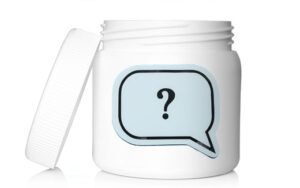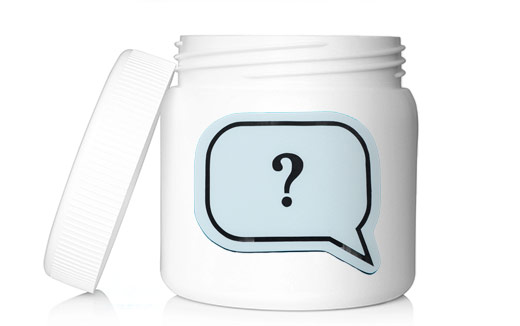 Supplement and sport nutrition companies face critical decisions regarding the manufacturing process. Two common approaches are private labeling and contract manufacturing. Each method comes with its own set of advantages and disadvantages, impacting aspects such as control, branding, cost, and scalability. JW Nutritional can provide you with either option. We have items available for private labeling as well as the ability to use our in-house formulation team to create a unique property for your business. Lets go over the Pros and Cons for Private Labeling and Contract Manufacturing.
Supplement and sport nutrition companies face critical decisions regarding the manufacturing process. Two common approaches are private labeling and contract manufacturing. Each method comes with its own set of advantages and disadvantages, impacting aspects such as control, branding, cost, and scalability. JW Nutritional can provide you with either option. We have items available for private labeling as well as the ability to use our in-house formulation team to create a unique property for your business. Lets go over the Pros and Cons for Private Labeling and Contract Manufacturing.
Private Labeling
PRO = Branding Control: Private labeling allows companies to establish and maintain their brand identity. They can customize labels, packaging, and even formulations to align with their brand’s values and target audience preferences.
PRO = Speed to Market: With private labeling, companies can swiftly bring products to market since they don’t have to invest time in product development or formulation. This agility is crucial in the fast-paced supplement industry, enabling companies to capitalize on trends and consumer demands promptly.
PRO = Cost-Effectiveness: Private labeling typically requires lower upfront costs compared to contract manufacturing. Companies can avoid expenses associated with research and development, manufacturing equipment, and facility maintenance, making it an attractive option for startups or companies with budget constraints.
PRO = Control Over Quality: While not directly involved in manufacturing, companies retain control over the quality of their products. They can choose reputable manufacturers and establish strict quality control measures to ensure products meet their standards and regulatory requirements.
CON = Limited Customization: Private labeling restricts the level of customization companies can implement. They may have limited options in tweaking formulations or sourcing specific ingredients, which could hinder differentiation from competitors.
CON = Dependency on Suppliers: Companies relying on private labeling are dependent on their suppliers’ capabilities and reliability. Any issues or disruptions in the supply chain could directly impact product availability and consistency, potentially harming brand reputation.
CON = Less Innovation: Since private labeling involves repackaging existing formulas, it may stifle innovation within the company. Companies may miss out on opportunities to develop unique formulations or proprietary blends that could set them apart in the market.
Contract Manufacturing:
PRO = Expertise and Resources: Contract manufacturers specialize in supplement production, offering expertise, state-of-the-art facilities, and advanced technologies. They bring extensive experience in formulation, production, and quality assurance, ensuring high-quality products that meet industry standards.
PRO = Scalability: Contract manufacturing provides scalability options for companies experiencing growth or fluctuations in demand. Manufacturers can accommodate varying production volumes, allowing companies to expand their product lines or adjust inventory levels without significant capital investment.
PRO = Focus on Core Competencies: By outsourcing manufacturing, companies can focus on their core competencies such as marketing, sales, and brand building. This streamlined approach enhances operational efficiency and enables companies to allocate resources strategically.
CON = Loss of Control: Contract manufacturing relinquishes some control over the production process to third-party manufacturers. Companies must carefully select trustworthy partners and establish clear communication channels to mitigate risks associated with quality control and product consistency.
CON = Higher Costs: While contract manufacturing eliminates upfront investment in manufacturing infrastructure, it often entails higher production costs per unit. Companies must factor in manufacturing fees, minimum order quantities, and potential price fluctuations, impacting profit margins.
CON = Intellectual Property Risks: Sharing proprietary formulations or product specifications with contract manufacturers poses intellectual property risks. Companies must negotiate robust confidentiality agreements and safeguards to protect their trade secrets and prevent unauthorized replication of their products.
The choice between private labeling and contract manufacturing hinges on various factors such as branding objectives, budget constraints, and long-term growth strategies. While private labeling offers control and cost-effectiveness, contract manufacturing provides expertise, scalability, and focus. Ultimately, you must weigh the pros and cons carefully to determine the most suitable manufacturing approach that aligns with your business goals and market dynamics.
Ready to get started on your formulation or custom product? Click the link below to find out what is possible!
Why JW Nutritional for Supplement Manufacturing?
JW Nutritional can manufacture a wide variety of supplements to suit the needs of your customers. With the inclusion of our complete packaging solutions including bottles with lid closures, sachets, stick packs and zip-seal bags, clients can receive a complete product that is ready for order fulfillment. If you are interested in the vitamin manufacturing services we offer, please contact us today!
